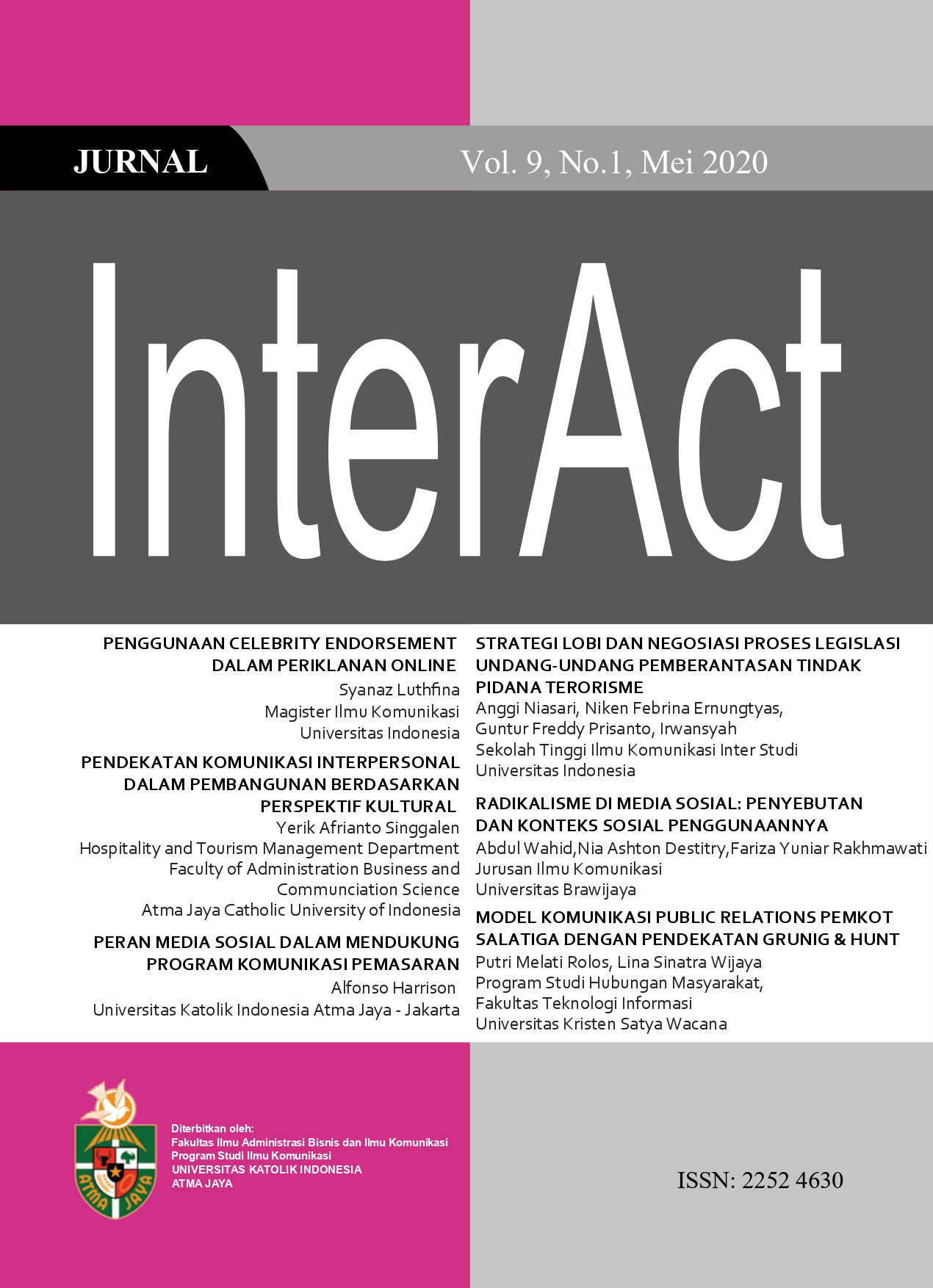Strategi Lobi dan Negosiasi Proses Legislasi Undang-undang Pemberatasan Tindak Pidana Terorisme
DOI:
https://doi.org/10.25170/interact.v9i1.1710Keywords:
Brainstorming, Compromising, Convincing, Lobbying, NegotiationAbstract
Lobby and negotiation in the legislation process need strategies to plan, persuade and advocate stakeholders to reach an agreement. This article aims to describe the strategies of lobby and negotiation in the
legislation process of the People’s Representative Council, particularly antiterrorism law. The antiterrorism law had been revised from the Law of the Republic of Indonesia Number 15 of 2003 concerning the change of the Government Regulation in Lieu of Law Number 1 of 2002 amending the Anti-Terrorism Act. The legislation process of antiterrorism law revision took two years and involved public debates on the pro cons issues. Qualitative data was collected by an in-depth interview from three informants. Based on thematic
analysis, three strategies of lobbying and negotiating was found; (1) compromising, (2) brainstorming, and (3) convincing. These strategies were used in the different pro cons issues in the legislation process. Moreover, the strategies succeed to drive the agreement on the antiterrorism law enactment.













